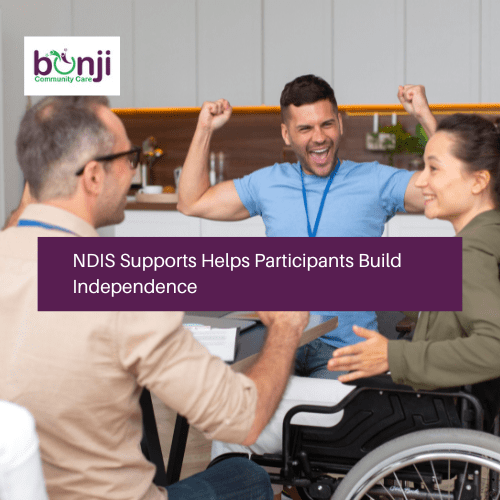The National Disability Insurance Scheme (NDIS) in Australia is designed to provide support and services to individuals with disabilities. The NDIS aims to assist participants in developing their independence and achieving their goals. Limited access to housing, public transportation, and infrastructure can hinder the ability to move around and enjoy necessary services.
Also, obtaining assistive devices like wheelchairs, hearing aids, and visual aids can also be expensive and involve navigating complex systems. This is why the NDIS was established – to give anyone with a disability in Australia the support system they need to create an independent, self-sustaining life.
What is the Role of NDIS?
Launched in 2016, the NDIS programme provides funding to people with disabilities, so they can find the right support services and regain control of their lives without worrying about finances. There are three main categories offered:
- Core Supports — for general living assistance
- Capital Support — for assistive living products
- Capacity Building — for motor skills development and more
Even though the funding will be determined by the category of support required, the scheme works on an individualised funding model. In this, the participant works closely with support workers to understand needs and goals based on their specific circumstances. NDIS strives to focus on early intervention and lifetime support. It offers funds for a wide range of support, including but not limited to assistive technology, personal care, therapy, and community participation.
Which NDIS Supports Do You Need?
The philosophy behind NDIS services is to open up new avenues of possibilities for those with a disability so that they have more choices. With increased avenues comes the ability to choose and create the life they have always dreamed of. To this end, the NDIS provides access to various supports focused on improving quality of life and independence. Here are some examples:
1. NDIS Improved Daily Living Skills
It includes:
- Assistance with personal hygiene, dressing, and grooming
- Meal preparation and support with eating
- Help with household tasks and running errands
- Gardening, medical assistance, and personal appointments
2. Development of Life Skills NDIS
It includes:
- Development of daily living and life skills
- Learning new skills relevant to your goals
- Active participation in all aspects of life
3. Community Participation NDIS
It includes:
- Social and recreational activities
- Skills development programmes and training
- Support for community engagement and inclusion
4. NDIS Accommodation and Tenancy
It includes:
- Qualified nursing staff and 24/7 support
- Assistance in finding the right type of accommodation
- Help with managing household activities
- Encouragement for community engagement
5. NDIS Therapy Services
It includes:
- Occupational therapy, physiotherapy and speech therapy
- Psychological counselling and mental health services
- Behavioural support and intervention
6. Employment Support NDIS
It includes:
- Job coaching and vocational training
- Workplace modifications and assistive technology
- Interview preparation and supported employment opportunities
Among the broad range of support offered by various registered NDIS support providers in Melbourne, individuals can sign up for ones relevant to their needs, preferences, and goals. However, it’s important to consider your choice of provider carefully as it greatly impacts the quality of support you receive as a participant.
How Do Support Workers Help You Build Independence?
One of the biggest benefits of finding the right NDIS provider is that participants get to work with a dedicated support worker — someone passionate about enhancing their life by providing assistance and emotional support consistently. A reliable support worker can contribute to accomplishing goals and building independence by helping in the following ways:
1. Personal Care – Bathing, dressing, grooming, and toileting to ensure personal hygiene and comfort.
2. Mobility and Transportation– Mobility aids, transfers, and transportation that enable you to move around safely and access the community.
3. Medication and Health Management– Managing medications, monitoring health and assisting with medical appointments.
4. Household Tasks– Household chores, meal preparation, cleaning, and laundry to ensure a clean living environment.
5. Emotional Support and Companionship– Lending an ear, offering empathy, and engaging in meaningful conversations to reduce feelings of isolation.
6. Skill Development– Developing and improving life skills like communication, social interaction, money management, and self-care.
7. Community Engagement– Facilitating participation in community activities, establishing connections, and promoting inclusion and a sense of belonging.
By being with them every step of the way and providing practical assistance in the ways mentioned above, a support worker can truly empower a person with a disability and improve their overall quality of life.
Bunji Community Care is a registered NDIS provider that offers a wide range of NDIS services. They are committed to personalising their services to help individuals make the most of their NDIS funding. Call them on 03 8790 5503 or email at [email protected] to learn more.

As the editor of the blog, She curate insightful content that sparks curiosity and fosters learning. With a passion for storytelling and a keen eye for detail, she strive to bring diverse perspectives and engaging narratives to readers, ensuring every piece informs, inspires, and enriches.










